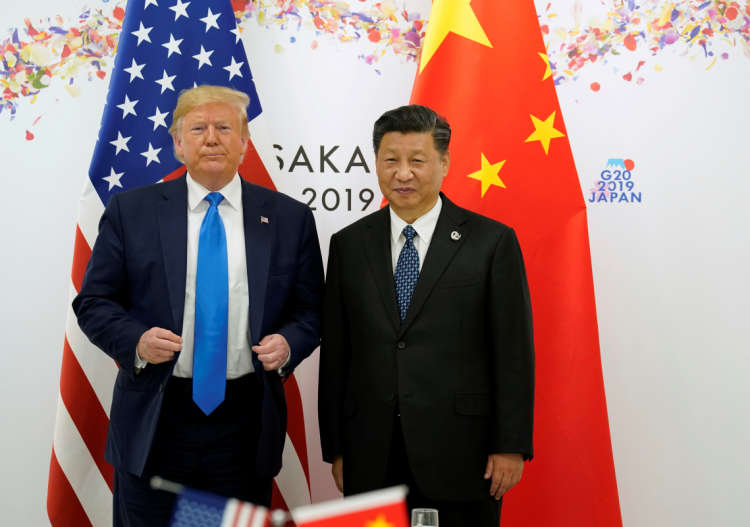The world will be plunged into a new global recession anywhere from six to nine months after new tariffs levied by both the United States and China against each other last week take effect in December.
This dire warning was issued by American multinational investment bank and financial services firm Morgan Stanley in light of the increasing tensions generated by Trump's trade war against China.
Morgan Stanley said the risk of a global recession and market retreat has significantly risen since last week. It predicts the global economy will plummet into a recession six to nine months after the U.S. and China enforce their new round of tariffs.
"Risks remain skewed towards further escalation at least until the material market or economic weakness shows," wrote Morgan Stanley Chief Economist Chetan Ahya in a note to clients.
"Continued trade tensions, combined with reactive monetary and fiscal policy, mean that the risk of non-linear tightening in financial conditions, triggering a global recession, is high and rising."
The unsettled global economic outlook is so discouraging investors should consider a portfolio shift, according to Mark Haefele, a chief investment officer of UBS Wealth Management Global.
"With talks between the US and China dominating market moves over the near term, investors should brace for higher volatility. We believe it is prudent to take action to neutralize part of this event risk," he said in a note to investors.
"As a result, we are reducing risk in our portfolios by moving to underweight in equities to lower our exposure to political uncertainty."
Haefele said he's no longer confident the U.S. Federal Reserve will be able to push stocks higher despite its capability of minimizing downside risk. UBS continues to recommend investors look for opportunities to carry strategies in credit and foreign exchange markets. These investment destinations stand to benefit from a worldwide shift by global central banks to easier monetary policy.
"We continue to take a risk on income-enhancing strategies, which benefit from central bank easing as global growth slows. This includes overweight positions to European investment-grade bonds and ... an overweight to US dollar-denominated emerging market sovereign bonds."
Trump on Monday predicted a great trade deal with China is at hand but provided no proof to prove his point. He claimed Chinese officials had contacted their U.S. trade counterparts overnight and offered to return to the negotiating table.
"China called last night our top trade people and said 'Let's get back to the table', so we'll be getting back to the table, and I think they want to do something," alleges Trump.
On the other hand, Chinese Foreign Ministry spokesman Geng Shuang said he hadn't heard a phone call between the two sides had taken place, as Trump falsely claimed. China's Commerce Ministry, which normally releases statements on trade calls, made no mention of Trump's claim.






